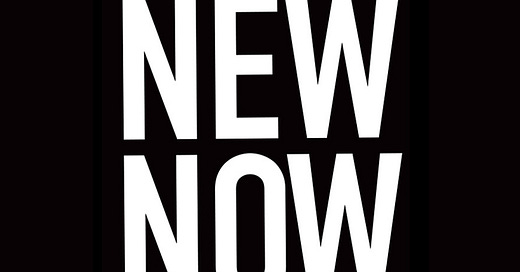Pursuing Happiness
A declaration of reinvention
Near the top of the Declaration of Independence are several key words that have left a lasting impact on our culture. These words state that every citizen has the right to life, liberty, and the pursuit of happiness.
Looking back to the time when this document was written, it’s clear how the insertion of these words was a brilliant choice of concepts to include in this founding document, which has been studied and debated since it was composed.
We’re already alive if we’re capable of reading the words “life, liberty, and the pursuit of happiness,” so that’s a given. But wait. Life, as in the good life? Life, as in reaching for your dreams? Life, as in continually growing and giving back to the best of your ability to the culture you live in?
Liberty is a tricky one too. Liberty to do what exactly? Here you go, have a cup of liberty, filled to the brim. No, wait, that’s too much. We actually meant a thimble full. Liberty to do, be, strive for and keep figuring out what in the whole wide world one wants to do with this wondrous gift of liberty. Liberty to feel free and safe from all forms of senseless violence anywhere in your city, state, country? Liberty to be spiritual and not religious? Liberty to love freely and openly? Liberty to be open minded, and be full of liberality and loving kindness?
The third one is the most open to interpretation. The pursuit of happiness. Really? I can pursue, go on a quest for, chase after, be open to, keep on struggling to locate happiness? Thanks Declaration. Here’s why this phrase has been problematic for over 200 years. Every individual defines this vague concept with wildly different interpretations. Which is part of the beauty and wonder of our culture. There’s an extremely good chance your pursuit of happiness isn’t going be my pursuit of happiness. Think of just a few of the variables at work here. Differences in age, socio-economic factors, race, belief-systems, emotional intelligence, political views, and sexual orientations and identifications. Go ahead. Toss a few of these variables in a blender and serve them up to the community at large. What makes every person in your household happy? How about your neighborhood? The city you live in? You won’t see any agreement once you move away from one or two people you know, who you are kind of maybe sure about their likes and dislikes.
What our culture wants us to believe is that by pursuing money, wealth, and fame—we’ll eventually reach happiness. Maybe this cultural construct was there from the start, and is the secret underlying message in our founding documents. To think that a room full of money equals the elusive goal of happiness is a powerful concept, but it’s just as accurate as saying you’ll always be happy if you live in the right neighborhood in the perfect city, meet the ideal partner, write a brilliant screenplay, live to be 100, change the world. or raise genius kids.
Moments and weeks of happiness will occur at some point in all our lives. Whether it comes by chasing after it, or if it just shows up on your doorstep one afternoon with a suitcase full of daydreams and confetti is another matter altogether.
What a grand gesture. The pursuit of happiness, codified into the founding document of a newly emerging nation. The nerve of those guys. And wow, the wit and heart of them to incorporate such an idea into a founding document. Happiness as an ideal to reach for and maybe not ever attain, but these colonial founders at least wanted to plant the idea. Happiness should be pursued.
What if more than pursuing happiness had been included in the Declaration of Independence?
· How about pursuing truth?
· What about pursuing love?
· How about pursuing the fruits of the imagination and what it can create?
· When should we begin more diligently pursuing world peace?
· How about pursuing empathy and compassion?
None of the above ideas are codified in the Declaration. Instead, we were given the green light to chase after happiness—wherever it may lead. Is it time to add some more specific ideas, ones that directly relate to our times? Should we update our founding documents? Happiness is a fine aim, in a general sense, under most circumstances. Although, one person’s happiness is another person’s joy. Another person’s happiness is someone else’s deep sense of wonder. Then again, one person’s happiness can step on someone’s toes. Someone’s idea of happiness may be taking away your rights, which is as wrong as the day is long. Truth be told, there are many other states of being and aims people strive for over the course of their lives. Maybe it’s time to filter in a wider selection of the highest qualities making up the whole of human experience.





Great questions Russell C. Smith. The origin of 'Life, Liberty, and the Pursuit of Happiness' goes back to British philosopher John Locke's "Two Treatises of Government" (1689). Locke's theory was a collective of individuals would organize a government ensuring our natural rights of life, liberty, and property.
In that light the pursuit of happiness could mean the right to make our own healthcare decisions or other decisions that impact ourselves. Here's the entire piece: https://joelkdouglas.substack.com/p/john-locke-ownership-of-self
Again, you pose some great questions!
The Founding Fathers were expecting too much of their citizens. They'd be disappointed now.